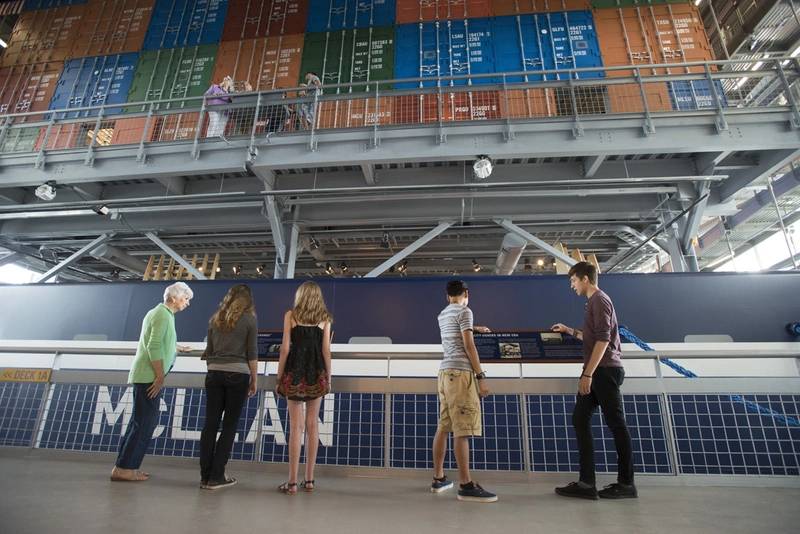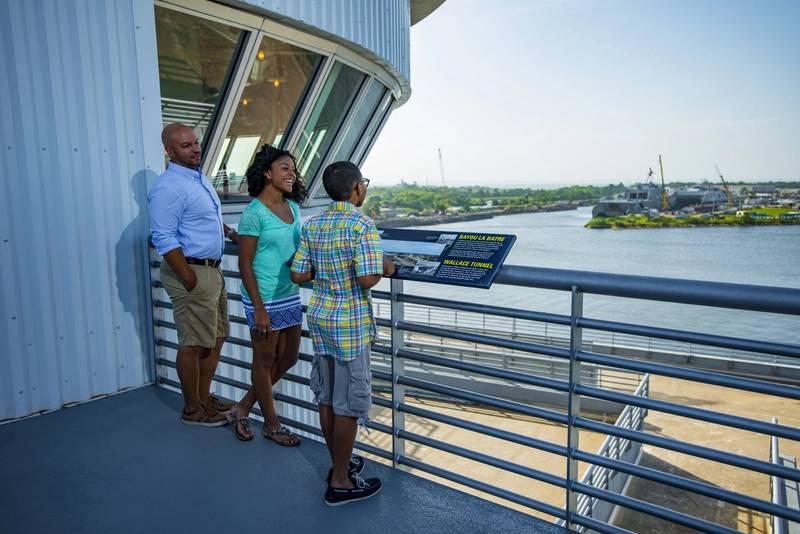Why Maritime Museums Matter
With today’s focus on digital technology, mobile apps, enhanced reality and the overall digital landscape, the maritime industry often gets overshadowed, leaving some to ask, “Does maritime still play a significant role in today’s society?” The answer, of course, is a resounding “Yes!”
Maritime museums, such as GulfQuest National Maritime Museum of the Gulf of Mexico, are here to introduce to some (and reinforce to others) the continued importance of maritime history and the cultural and economic impact the industry has on a global scale. By doing so, more and more millennials are discovering jobs outside of Silicon Valley, ones that do not require sitting behind a desk all day; jobs that enable you to travel the globe, experience other cultures and have a significant and visible impact on the global economy.
GulfQuest, the world’s only maritime museum dedicated to the historical, cultural and economic significance of “America’s Sea” - the Gulf of Mexico - aims to help expose people to this industry. With 90 interactive exhibits housed inside the stern of a full-sized replica of a containership, GulfQuest encourages visitors to immerse themselves in the maritime industry and show them how they can be part of this exciting industry.
“We have taken extra measures, every step of the way, to design an immersive experience for our visitors. The exhibits are both entertaining and educational, and encourage visitors to explore every maritime aspect of the Gulf of Mexico,” said Tony Zodrow, GulfQuest executive director. “From the ramp ways on either side of the [container] ship, to the sounds of the ship’s engines humming, to the lighting effects, visitors will feel very much like they are inside a life-size vessel.”
GulfQuest’s containership, the SS McLean, commemorates the concept of containerization, an idea pioneered by Malcom McLean in the 1950s as the owner of Waterman Steamship Corporation in Mobile, the museum’s home port. Containerization revolutionized world trading by dramatically lowering shipping costs, thus making it possible for companies to manufacture their products and ship them worldwide at affordable costs.
Interactive maritime museums such as GulfQuest allow visitors to experience of the industry in a more hands-on way. As Joan Wages stated in a recent Huffington Post article tilted Why Museums Are Important, “Seeing something in person is quite different than seeing it in the pages of a book or on a computer screen.”
By exposing the public to the wonders of the maritime industry, translating the industry language to the laymen and passing our maritime traditions down to the next generation in an interactive, fun and engaging way, we can ensure the achievements, culture and impact of the industry will continue to be felt across the globe.
If we can inspire one person, just one, to consider maritime as a career option, then we know we have done our job.
The Author
Jeremy Bonds is the Public Relations Coordinator at GulfQuest. Before joining GulfQuest, Jeremy was Assignment Editor for the NBC affiliate in Mobile and a radio producer/marketing specialist for two local radio stations. A graduate of the University of South Alabama, Jeremy previously free-lanced as a properties artisan in New York City, creating specialty props for TV, film and Broadway, and interned for late-night talk show CONAN on TBS.


